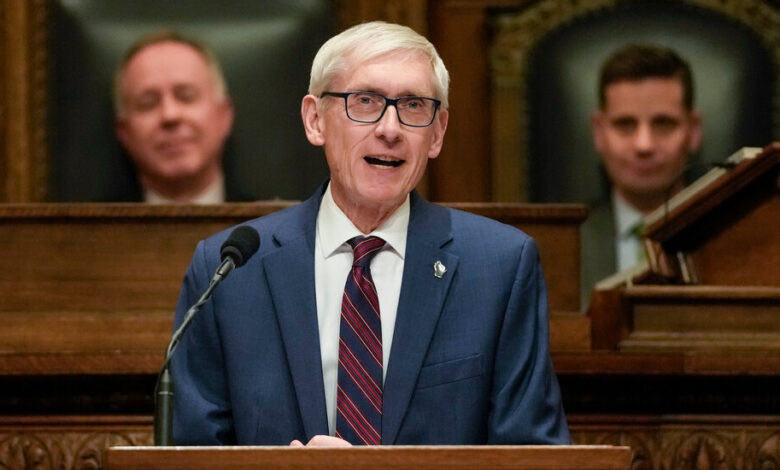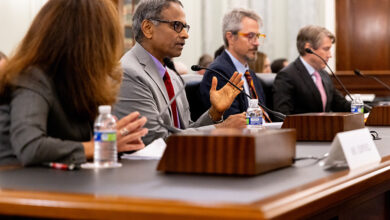Fretting about election-year deep fakes, states roll out new rules for A.I. content.

Wisconsin for the first time this year will begin requiring political advertisers to disclose the use of content generated by artificial intelligence or face financial penalties. But the battleground state, one that played a critical role in the last two elections, is not alone.
An increasing number of states have advanced A.I.-related legislation to combat attempts to mislead voters during the 2024 election, according to a new analysis by the Voting Rights Lab, a national voting rights organization.
Voting Rights Lab said it was tracking over 100 bills in 40 state legislatures, amid some high-profile cases of “deep-fake” video technology and computer-generated avatars and voices being used in political campaigns and advertisements.
One of the more glaring examples happened in New Hampshire, where a criminal investigation was opened after voters there received robocalls mimicking President Biden’s voice and urging Democrats to not vote in the state’s primary in January.
Another instance marred last year’s election in Slovakia, where deep-fake voice recordings falsely purported to be of the leader of a pro-Western political party depicted him as buying votes. The party narrowly lost to a pro-Kremlin party.
In Wisconsin, political advertisers will face a $1,000 fine for each violation under a bill signed into law on Thursday by Gov. Tony Evers, a Democrat.
A similar measure won approval from both chambers of the state legislature in Florida and is heading to Gov. Ron DeSantis, a Republican, for review. A spokeswoman for Mr. DeSantis said that he had not yet received the final version of the bill, which includes both civil and criminal penalties.
In Arizona, the State Senate and State House have passed their own versions of bills that would ban the use of deep fakes, or artificial images. Each chamber’s legislation still hasn’t been taken up by the other chamber yet. One version would make it a crime to engage in deep fakes, though only within 90 days of an election. Repeat violations would be a felony.
States like California, Texas, Washington, Minnesota and Michigan have already rolled out laws regulating the use of A.I. in campaign advertising.



